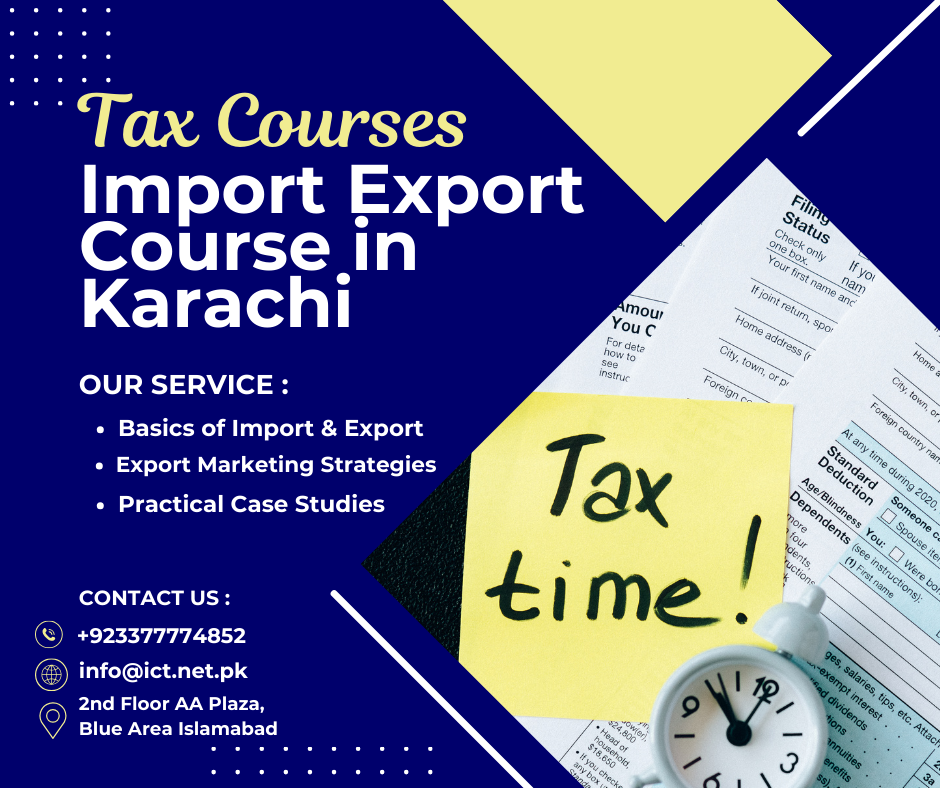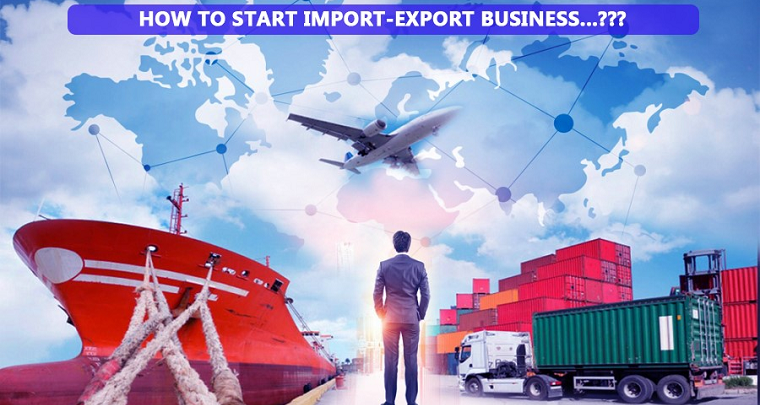How to Become an Import Export Expert in Karachi

Strong 8k brings an ultra-HD IPTV experience to your living room and your pocket.
Introduction: Why Import Export is the Future in Karachi
Karachi, the economic heartbeat of Pakistan, is a thriving hub for trade and commerce. With access to one of the busiest ports in South Asia—Port Qasim and Karachi Port—this city offers unmatched potential for those looking to enter the lucrative world of international trade. But here's the million-rupee question: How do you become an Import Export Course in Karachi?
In today’s globalized economy, knowing how to navigate import and export laws, logistics, and international markets can open doors to remarkable opportunities. Whether you're a fresh graduate, a small business owner, or an aspiring entrepreneur, this blog will show you exactly how to build expertise, credibility, and profitability in the import-export business—right from Karachi.
Let’s dive deep into actionable steps, answer FAQs, and reveal the secrets successful traders use to dominate this industry.
Body: Your Step-by-Step Guide to Becoming an Import Export Expert in Karachi
Step 1: Understand the Role of an Import Export Expert
Before you start, get clear on what the job entails. An import-export expert manages the buying and selling of goods across international borders. In Karachi, this often involves working with customs, shipping agents, freight forwarders, and international suppliers.
You need to be knowledgeable in:
International Trade Laws
Customs Regulations (FBR, SROs, Duties)
Tariff Classifications
Incoterms (FOB, CIF, etc.)
Shipping Documentation (B/L, Invoice, Certificate of Origin)
Pro tip: Begin by studying the Import Policy Order and Export Policy Order issued by the Ministry of Commerce Pakistan.
Step 2: Get Certified and Educated
You don’t need a university degree to enter this field, but certifications and courses drastically improve your credibility.
Top institutions in Karachi offering trade-related courses:
Institute of Business Administration (IBA) – Trade & Logistics Program
Pakistan Institute of Management (PIM) – Import Export Documentation Course
SMEDA & TDAP – Online webinars and workshops
According to TDAP (2023), trained traders are 45% more likely to secure international contracts.
Step 3: Register Your Import Export Business
Legal compliance is key. Here’s how you can register your business:
Register with SECP (Sole Proprietor, Partnership, or Pvt Ltd)
Get NTN from FBR
Enroll in WEBOC (Web-Based One Customs) system
Apply for Chamber of Commerce Membership
Open a Business Bank Account
Bonus Tip: Karachi Chamber of Commerce and Industry (KCCI) is a vital platform for networking and resources.
Step 4: Master the Tools and Platforms
Successful exporters/importers use cutting-edge tools to manage operations:
WEBOC for customs clearance
HS Code Directory to classify products
Alibaba, TradeKey, Global Sources to find buyers/suppliers
Freightos and Maersk tools for shipping rate comparison
Use technology to save time, reduce errors, and boost efficiency.
Step 5: Find Profitable Products to Trade
Not all products are created equal. Focus on items with high demand and manageable regulations.
Hot Export Items from Karachi:
Seafood
Rice
Textiles
Surgical Instruments
Leather Goods
Popular Imports to Karachi:
Electronics
Chemicals
Machinery
Automobiles & Parts
Pakistan’s exports reached $30 billion in 2024 (PBS), and Karachi accounts for over 50% of trade volume.
Step 6: Build Strong Global Connections
Networking is the heartbeat of global trade. Attend expos like Expo Pakistan, Textile Asia, or ITIF Asia, and leverage platforms like LinkedIn, Alibaba Trade Shows, and B2B portals.
Traders with established international networks grow 3x faster, according to World Bank insights.
Step 7: Stay Updated & Keep Learning
Trade laws, tariffs, and currency rates are constantly changing. Subscribe to:
FBR Notifications
State Bank Circulars
Pakistan Customs Updates
International Trade Centre Reports
You should also join trade forums, WhatsApp groups, and TDAP briefings regularly.
FAQs: Frequently Asked Questions
Q1: Do I need a license to start an import export business in Karachi?
A: Yes, you need to register your business, get NTN, and enroll in WEBOC.
Q2: How much investment is required to start?
A: It can vary. For a basic trading setup, you might need PKR 500,000–1 million.
Q3: Can I start import export from home?
A: Absolutely. You can manage everything online, from sourcing to documentation.
Q4: Which platform is best for finding buyers?
A: Alibaba, Made-in-China, Global Sources, and social media platforms like LinkedIn.
Q5: What are the biggest challenges in Karachi’s import-export market?
A: Customs delays, documentation errors, currency fluctuations, and changing trade policies.
Conclusion: Karachi’s Global Trade Potential is Yours to Tap
Becoming an import export expert in Karachi isn’t just a career move—it’s a gateway to global business success. With the right knowledge, certifications, network, and tools, you can navigate the complex world of international trade and grow your business beyond borders.
Note: IndiBlogHub features both user-submitted and editorial content. We do not verify third-party contributions. Read our Disclaimer and Privacy Policyfor details.







